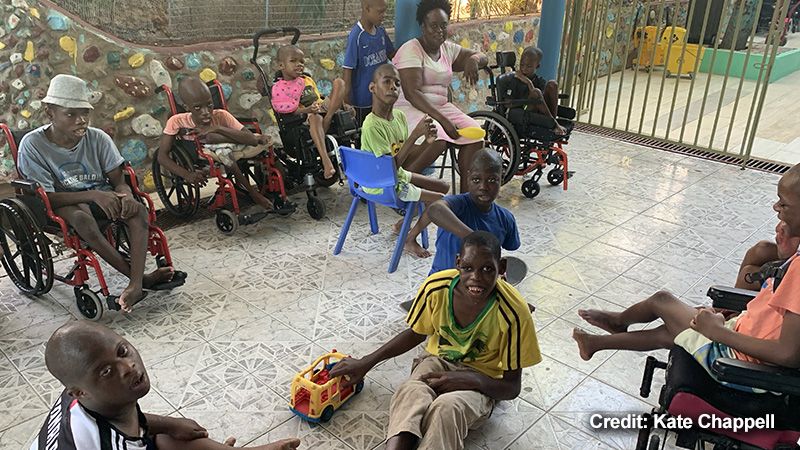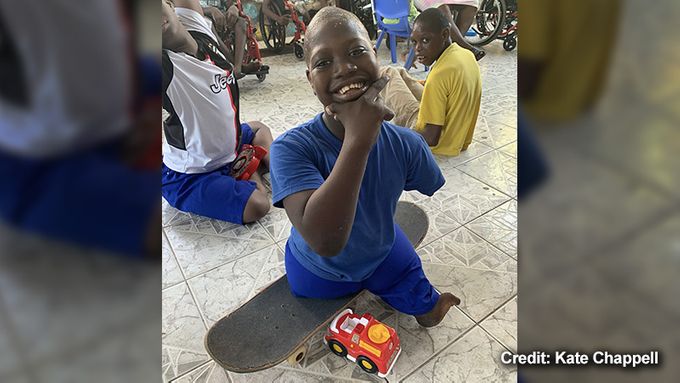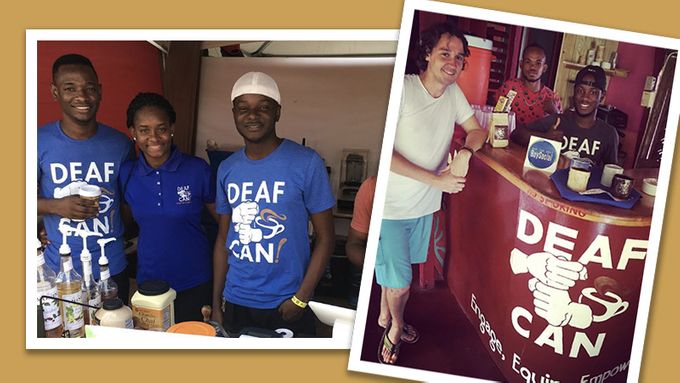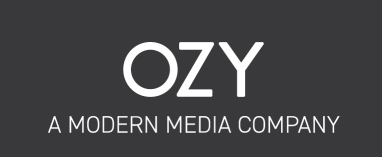Jamaica tries new approach to disabilities
In this Caribbean nation, many with disabilities have faced untold hardship. Social entrepreneurs, as well as new laws on the books, seek to change that.

Sponsored by

Overwhelmed
| Kate Chappell in Kingston, Jamaica @KateChappell |
| On a warm November morning, residents of Kingston’s Bethlehem Home were gathered on a covered veranda, many in wheelchairs. A boy named Bob, with a bright, ready smile, zipped about on a skateboard. Upon meeting a stranger, several residents rushed over with a big hug. The 52 disabled children living at Bethlehem Home have been completely deserted by their families.Peram Prem Sagar works for Missionaries of the Poor, a Catholic charity that runs the home. He is in charge of the Bethlehem facility. “Sometimes the parents feel overwhelmed. They are in poverty,” he explained. |
| Much of the public is not aware of the difficulties a disabled person faces, nor are they aware that disabilities can happen to anyone. – Jodi-Ann McFarlane of the Digicel Foundation |
| Disabled children are among Jamaica’s most vulnerable citizens. Some are dropped in front of fire stations, hospitals and churches, sometimes even in garbage bins, often in the dead of night. Located in a crime-ridden area of downtown Kingston, the Bethlehem Home has 20 staff and 35 volunteer caregivers watching over the children around the clock. A small number of the residents attend school, while others participate in learning activities with a teacher on site. Most never leave the residence. These children signify a deeper issue in this Caribbean nation of around 2.9 million people: a lack of education, awareness and resources for people with disabilities. A recent Unicef analysis found that Jamaica reflects a global trend: Persons with disabilities are more likely to be impoverished, unemployed or earning low wages, and with low health status and educational attainment, than those without disabilities. There are some bright spots, however, with a couple initiatives indicating signs of change. |
‘More Aware’

It is difficult to know precisely how many disabled people there are in Jamaica, but the country’s 2011 census found that more than 28,000 people between the ages of 5 and 14 reported difficulty in at least one area (among them seeing, hearing, concentrating and self-care), while over 450,000 people above the age of 15 reported the same.
This country is an inhospitable place for those with disabilities. Most buildings are not accessible by wheelchair, and there are few services for deaf or blind people, even in schools. Sidewalks are narrow and uneven, if there are any at all.
Jodi-Ann McFarlane, senior operations manager at the Digicel Foundation, a nonprofit organization aimed at increasing access for people with disabilities, said that much of the public is not aware of the difficulties a disabled person faces, nor are they aware that disabilities can happen to anyone. And the stigma remains, she said.
Businesses and organizations are asking for information about how to be more inclusive when it comes to accessibility and employment.
“Jamaicans in the past, kids with special needs, especially if it is severe, would have been hidden, they would not be allowed out. Some are still hidden,” she told OZY. Since its inception, the foundation has renovated or constructed 10 special needs centers across five parishes, or states, and renovated nine special education units while also building over 40 ramps in schools. In November, the Digicel Foundation unveiled a $260,000 renovation of Bethlehem Home, which included upgraded kitchen and bathroom facilities, said McFarlane.
According to Christine Hendricks, executive director of the Jamaica Council for Persons with Disabilities, the situation is improving from a legislative and policy perspective. There is also less shame and stigma, she explained.
“The population is more aware. Parents and caregivers to a large extent are less ashamed of having their children with disabilities,” Hendricks said. “You do have discrimination,” she continued. “But on a wide scale, you do have sensitization that is greater, and efforts to inclusion is greater.” For example, businesses and organizations are asking her for information about how to be more inclusive when it comes to accessibility and employment.
One enterprise is leading the way.
Deaf Can! Coffee

Deaf Can! Coffee is a social enterprise group that aims to empower deaf youth by training them as baristas and bakers. “We really want to see deaf people accepted,” said Andreen Kaeb, 27, who communicated with OZY over Zoom from Montego Bay, in sign language and through an interpreter. Kaeb does not consider the deaf population disabled, but rather that they speak a different language.
Deaf Can! Coffee sells Jamaican coffee and pastries at six locations across the island. They have built a faithful following among Jamaicans who are curious about sign language and enjoy the friendly service and alternate way of interacting.
“Most experiences are very positive,” Kaeb said, although she also noted that some customers become frustrated because they cannot communicate the way they are accustomed to. “Sometimes you have to educate the customer,” she explained.
While Deaf Can! Coffee is a rare find in this Caribbean nation, there are other signs of change.
| Deaf Can! Coffee sells Jamaican coffee and pastries at six locations across the island. They have built a faithful following among Jamaicans who are curious about sign language and enjoy the friendly service and alternate way of interacting. |
| New laws that are part of the Jamaica Disabilities Act went into effect last February. The act spells out the fundamental rights of persons with disabilities, including the right to education, employment and adequate health care. It also encourages Jamaicans to promote acceptance and prohibit discrimination. While these represent positive steps for advocates, McFarlane of the Digicel Foundation said there remains much work to be done, including in how people with disabilities are referred to. For instance, some people still use derogatory terms like “slow” or “retarded” without knowing that such terms are hurtful. Said McFarlane, “The awareness piece is so important.” |

| Is the approach to disabilities changing where you live? Tell us about it. |
| SHARE YOUR THOUGHTS HERE |

| TV | PODCASTS | NEWS | FESTIVALS |
| OZY is a diverse, global and forward-looking media and entertainment company focused on “the New and the Next.” OZY creates space for fresh perspectives, and offers new takes on everything from news and culture to technology, business, learning and entertainment. |
#OZYMedia, #TheDrop
OZY Media, 800 West El Camino Mountain View, California 94040






